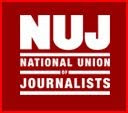
The NUJ
claimed today that disclosures made to the London Stock Exchange show that Trinity Mirror's three executive directors have been rewarded with free share-handouts worth more than £800,000 while imposing job cuts and a pay freeze on the group's employees.
The union says the share awards to chief executive Sly Bailey, finance director Vijay Vaghela and group legal director Paul Vickers have been unearthed by NUJ members at Media Wales in Cardiff, who are about to take part in a strike ballot following an announcement last Thursday of 13.2 editorial redundancies at the Trinity Mirror-owned subsidiary.
Bailey wrote to all staff last November telling them there would be no pay rise in 2009 because of poor trading conditions and the group's difficulty in meeting interest payments on borrowings and making pension contributions. She said the pay freeze applied to all employees, including directors, adding that no bonuses would be paid either.
The NUJ says: "It has now emerged that on April 3 this year, Ms Bailey was awarded 270,270 Trinity Mirror shares at no cost to herself. At the time shares were trading at 28.5p, so the value of the chief executive's handout was £77,026.95. Since then, however, the share price has risen, and when trading closed on Friday it stood at £1.60. That meant Ms Bailey's free shares had rocketed in value to £432,432.
"Mr Vaghela was awarded 123,964 shares on the same day. Over the same period they rose in value from £35,329.74 to £198,342.40. Equally, Mr Vickers' 108,108 shares grew from being worth £30,810.78 to £172,972.80 on Friday.
"On top of this, the three directors exercised an option to "buy" more shares on June 29 this year. Ms Bailey "bought" 28,898 shares, Mr Vaghela 15,568 shares and Mr Vickers 12,060 shares.
"In fact, according to the London Stock Exchange website, there was no purchase price, and the shares were handed over to the trio free of charge. On the same day, Ms Bailey sold 11,755 of her new shares, picking up £5,995.05. Mr Vaghela received £3,241.56 after selling 6,356 shares, while Mr Vickers pocketed £2,516.85 after selling 4,935 shares."
Martin Shipton, NUJ FoC at Media Wales, said: "It beggars belief that at a time when these directors have been slashing jobs and freezing the pay of those left behind, they have been rewarded so handsomely in this way.
“Nothing was said about these share handouts at the time of the pay freeze, when much was made of the fact that it applied to directors too. This is an insult to every Trinity Mirror employee, and especially to those whose jobs are on the line."
 The NUJ today confirmed the eight shortlisted candidates who will stand in a ballot to succeed Tim Gopsill as editor of the Journalist.
The NUJ today confirmed the eight shortlisted candidates who will stand in a ballot to succeed Tim Gopsill as editor of the Journalist.














































